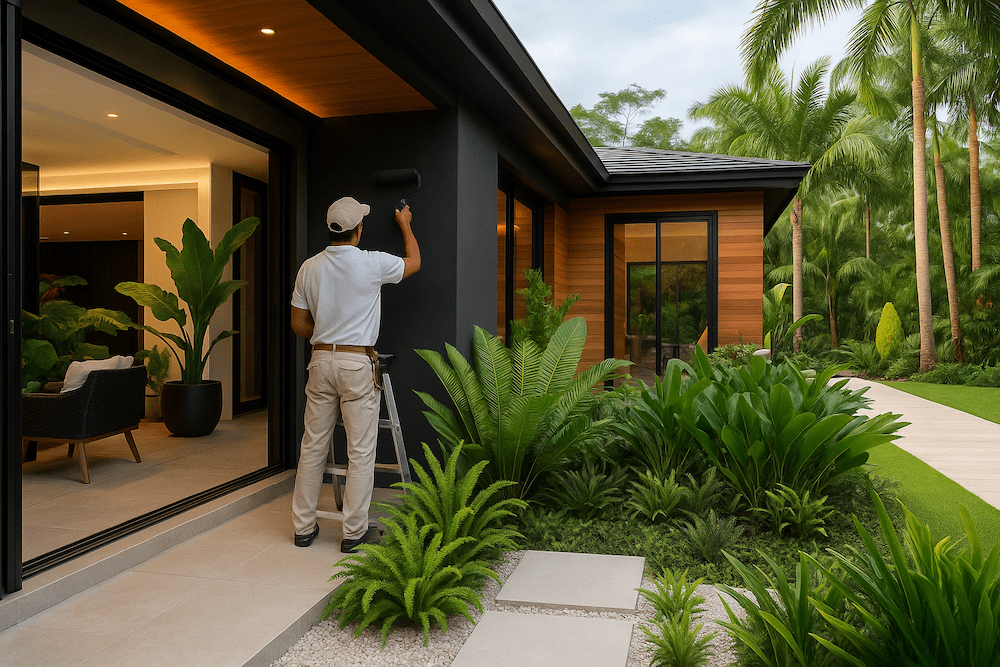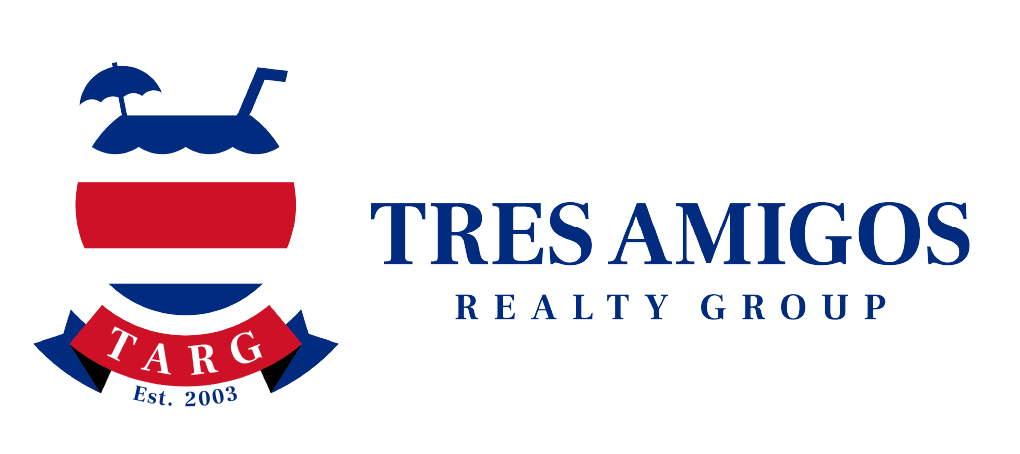1. Introduction / Overview
Until a few years ago, selling property in Costa Rica was almost too good to be true — profits from real estate sales were often tax-free. That changed in mid-2019, when the government introduced a formal capital gains tax as part of its sweeping fiscal reform, Ley de Fortalecimiento de las Finanzas Públicas. The move brought Costa Rica in line with international standards and created a more predictable system for investors and homeowners alike.
In simple terms, the capital gains tax applies to the profit made when you sell an asset — most commonly, real estate. If you buy a home for $300,000 and sell it for $400,000, the $100,000 profit is considered your capital gain. Costa Rica’s version of this tax may be newer, but it’s now a standard part of any property transaction, whether you’re a local resident or a foreign investor with a vacation home near the beaches of Guanacaste.
2. Scope & Applicability
The capital gains tax applies broadly to anyone — individual or corporate, resident or non-resident — who sells Costa Rican property and earns a profit. This includes homes, land, and other real estate interests. What matters is that a gain is realized when the sale is completed.
There are, however, notable exceptions. If the property sold is your primary residence and you are a Costa Rican tax resident, you’re generally exempt. Likewise, small-scale or one-off sales that don’t reflect a pattern of business activity are often treated more leniently. On the other hand, developers, builders, or habitual sellers are usually taxed under Costa Rica’s Impuesto sobre la Renta (income tax) instead — a different regime with its own rules.
One special rule applies to properties acquired before July 1, 2019. Sellers of these older properties can choose between the standard 15% capital gains tax or a flat 2.25% on the total sale price — an option designed to ease the transition for long-term owners.
3. Computing the Gain / Tax Base

At its core, the taxable gain is the difference between what you sell the property for and what you originally paid — adjusted for documented improvements and transaction costs. That means the acquisition cost includes not only your purchase price but also verifiable investments in construction, renovations, and upgrades.
Costa Rica’s tax system now requires that these improvements be supported by electronic invoices (factura electrónica), the official proof of expense recognized by the Hacienda. Without this documentation, improvements cannot be added to your cost basis, potentially increasing your tax burden.
Other deductible costs include legal and notary fees, real estate agent commissions, transfer taxes, and closing expenses. All values must ultimately be calculated in Costa Rican colones, even if your transaction was denominated in U.S. dollars. When documentation is incomplete, taxpayers may rely on official valuations — such as the property’s registered value or an independent appraisal — though this must be justified to the tax authorities.
4. Tax Rates & Options
The standard rate for capital gains tax in Costa Rica is 15% of the net gain. However, as noted earlier, there’s a key exception: if you purchased your property before July 1, 2019, you can opt instead to pay a flat 2.25% of the total sale price. This election can be beneficial if your property has appreciated substantially — for example, if you bought a beachfront home decades ago for $100,000 and are now selling it for $600,000.
Consider two simplified examples. A property purchased in 2020 for $200,000 and sold for $300,000 would yield a taxable gain of $100,000, resulting in a $15,000 tax bill under the standard rule. But if the same property had been acquired in 2010, the seller could elect to pay 2.25% of the total sale price — just $6,750 — likely the better deal. This choice must be made at closing and cannot be changed later.
5. Timing, Filing & Payment
The tax obligation arises the moment the sale or transfer of ownership is finalized. The seller — or their authorized legal representative — must file the declaration and pay the corresponding tax within 15 calendar days of closing. This is done through the Ministry of Finance’s online platform, Administración Tributaria Virtual (ATV), using form D-162.
Payments are made electronically through approved Costa Rican banks or directly in the ATV system. Missing the 15-day deadline can result in penalties, late interest, and potentially closer scrutiny from Hacienda.
6. Special Scenarios & Edge Cases
Some transactions sit in gray areas. Property received as an inheritance, for example, does not trigger capital gains tax until the heir later sells the property. Similarly, gifts or transfers without compensation are usually exempt, though future sales by the recipient will be taxable.
If the property is owned through a corporation, selling the shares instead of the real estate itself may still create a taxable gain — especially if the company’s sole asset is that property. Mixed-use properties (part residence, part rental) can be taxed proportionally, depending on usage. Developers or subdividers who sell multiple lots are typically reclassified under business income tax rules.
Foreign owners should note that the tax applies equally to them. Costa Rica taxes capital gains on property located within its borders regardless of the owner’s nationality or residency status.
7. Double Taxation & International Considerations
Costa Rica currently has limited double taxation treaties, meaning most foreign sellers cannot automatically claim a credit for the tax paid here. However, residents of countries such as the United States or Canada may still be able to offset the Costa Rican tax as a foreign tax credit on their home returns — depending on domestic tax laws.
Because the rules can be complex, it’s wise to consult both a Costa Rican accountant and a tax advisor in your home country before closing the sale. Many foreign investors choose to own property through a Costa Rican corporation precisely to simplify reporting and ensure compliance. Proper documentation also helps avoid issues when transferring or repatriating sale proceeds abroad.
8. Examples & Illustrations
Example 1: A home purchased in 2020 for $200,000 and sold in 2024 for $300,000 generates a gain of $100,000. The standard 15% capital gains tax equals $15,000.
Example 2: A villa bought in 2015 for $150,000 and sold in 2024 for $250,000 qualifies for the 2.25% alternative rate. The seller would pay $5,625 (2.25% of $250,000), likely a better option than 15% of the $100,000 gain ($15,000).
Example 3: Suppose you bought a property for $300,000 and invested $50,000 in documented renovations (all backed by electronic invoices). If you later sell for $400,000, your gain is only $50,000 — saving you $7,500 in tax compared to not documenting those improvements.
9. Tax Planning & Best Practices
Good tax planning begins long before a sale. Keep every factura electrónica related to your property — from construction to repairs and even landscaping if it adds value. These invoices can reduce your taxable gain significantly.
Consulting a certified Costa Rican accountant well in advance is essential, especially for foreign sellers who may need representation. Proper recordkeeping ensures a smoother process and minimizes the risk of disputes with Hacienda. If you’re planning to leave the country or repatriate funds, having all documentation in order can also prevent delays in transferring money abroad.
10. Risks, Audit & Enforcement
Costa Rica’s tax authority actively cross-checks real estate transfers recorded in the National Registry with filed tax declarations. A sale that appears in the registry but not in Hacienda’s system can trigger an audit or fine. Underreporting the sale price or omitting deductible expenses without proof may also raise red flags.
Habitual sellers who try to classify repeated transactions as “occasional” may eventually be treated as businesses, paying higher taxes and facing additional obligations. To stay compliant, retain all closing statements, contracts, and invoices for at least five years.
11. Recent Changes & Proposed Reforms
The 2019 fiscal reform marked Costa Rica’s entry into a modern capital gains framework. Since then, smaller adjustments have been introduced — mostly related to electronic filing and procedural details. Periodically, Hacienda tightens documentation requirements or adjusts how online declarations are processed through the ATV system.
While no major reform is currently in place, discussions around stricter enforcement and digital oversight continue. Investors should stay informed, as even minor administrative changes can affect filing requirements. Always confirm current rules with a professional before assuming past practices still apply.
12. Frequently Asked Questions (FAQ)
Is my primary residence exempt? Yes, if you are a tax resident and the home is your habitual dwelling.
What if I rent my house part-time? Only the personal-use portion may be exempt; rental use can affect eligibility.
Can I offset losses from other properties? Typically no, unless you are classified as a business under income tax rules.
Do I owe tax if I reinvest in another Costa Rican property? No rollover exemption currently exists.
How do I pay if I’m abroad? Through a local representative or directly via the Hacienda ATV platform.
What if I bought before 2019? You can opt for the 2.25% flat tax on the total sale price.
13. Conclusion / Key Takeaways

Costa Rica’s capital gains tax may seem complex at first, but it’s ultimately straightforward once you understand the rules: a 15% tax on profit, or a 2.25% flat option for older holdings. The key to minimizing your tax bill is documentation — every invoice, every improvement, every cent spent improving the property counts.
With proper planning and professional advice, this tax becomes less of a hurdle and more a predictable part of doing business in a maturing real estate market. Whether your property is in Papagayo, Tamarindo, or the Central Valley, the same national rules apply — and compliance is what keeps transactions clean, transparent, and future-proof.
Before selling, consult a trusted local accountant or real estate attorney familiar with tax regulations. A brief conversation could save thousands and ensure your sale proceeds flow smoothly wherever you call home next.
14. References & Further Reading
Ministerio de Hacienda: Administración Tributaria Virtual (ATV) - Spanish
Ley de Fortalecimiento de las Finanzas Públicas (Law 9635) - Spanish
For ongoing updates, follow reputable Costa Rican accounting and legal firms that publish fiscal guidance on property taxation, or, if you are interested in purchasing a property feel free to contact us to discuss the best way to structure your purchase.






